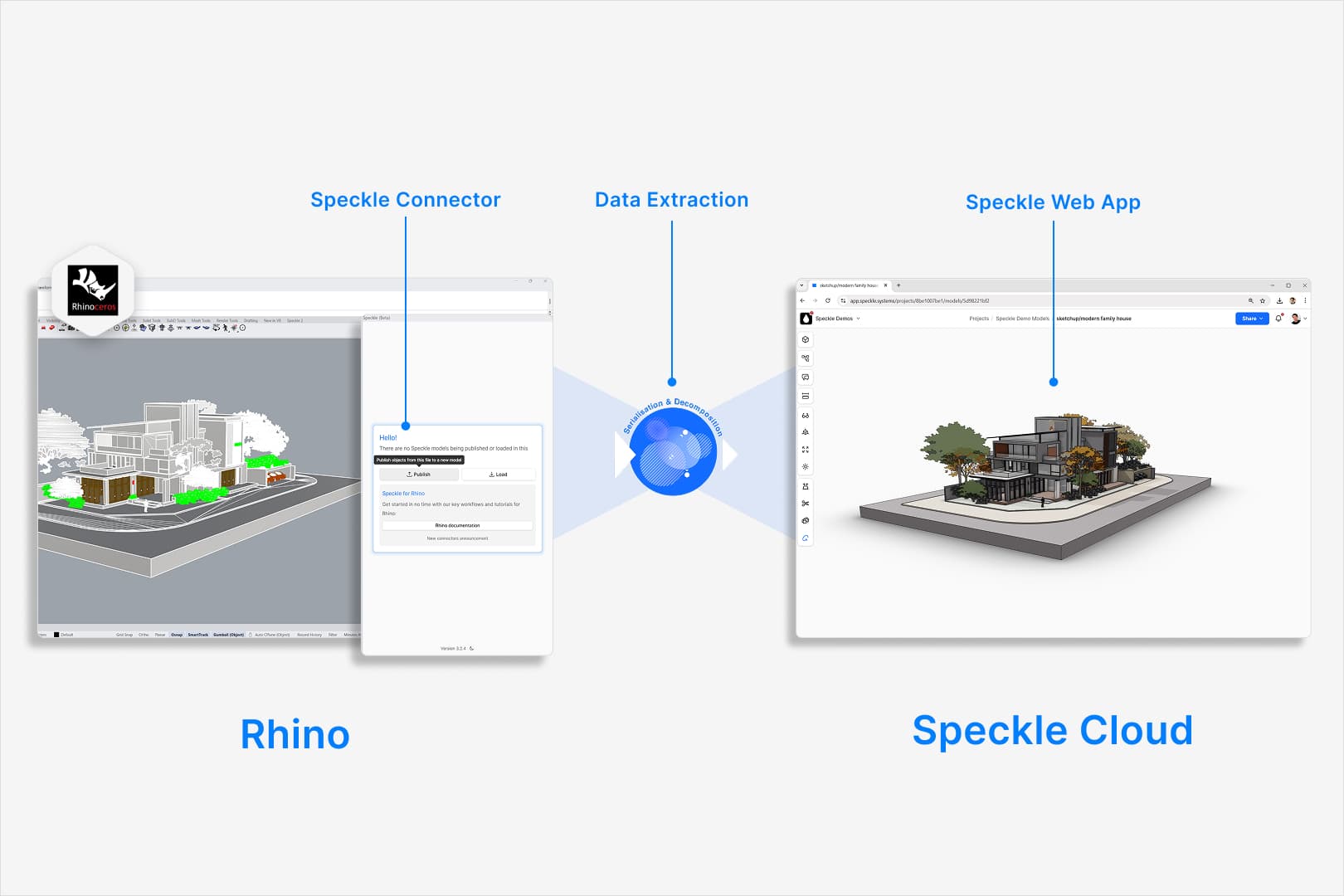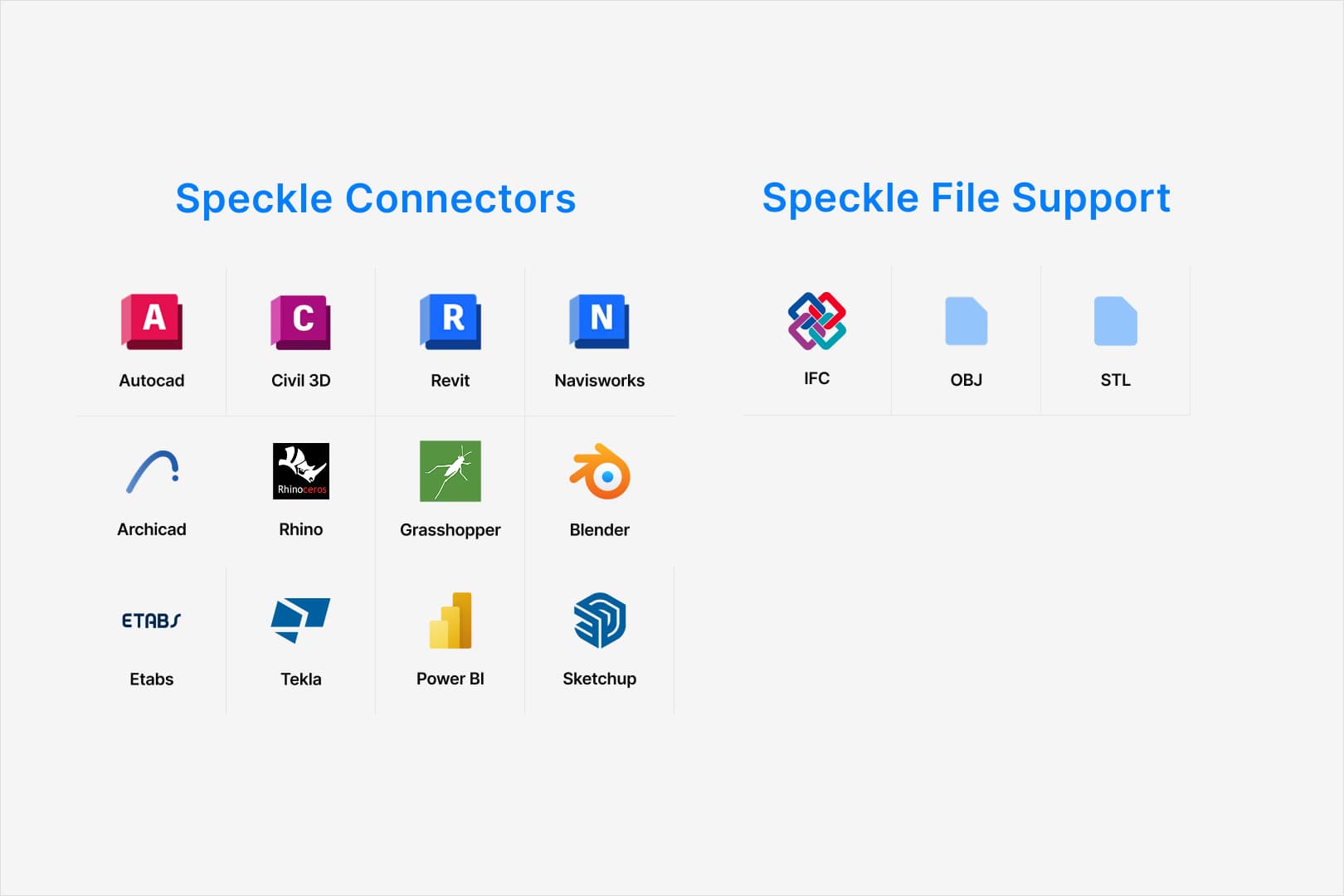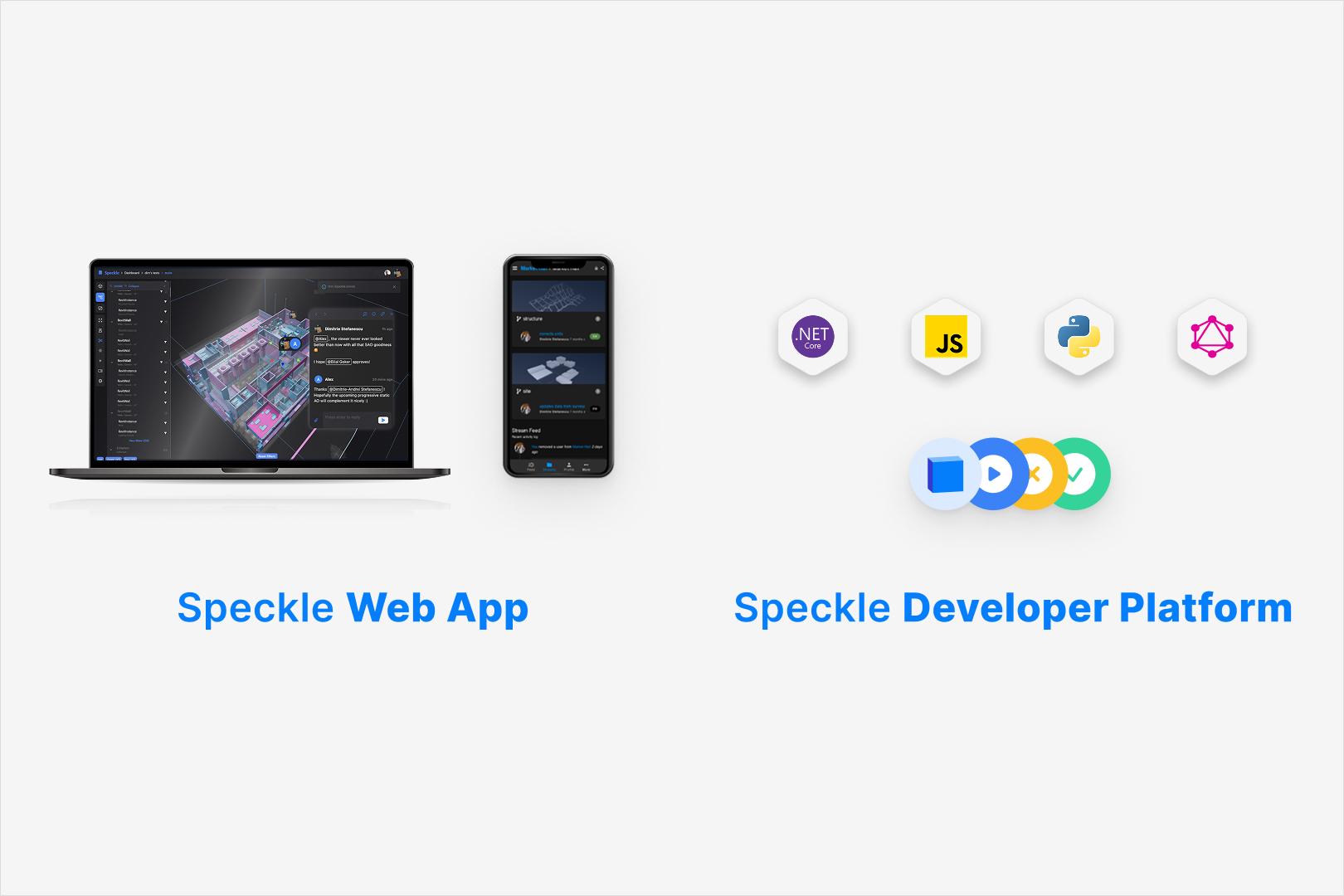Quick Reference
Welcome to Speckle
This documentation is your go-to resource for basic understanding of Speckle’s platform and terminology, getting started guides to set up workspaces, projects, and connectors, and common answers to FAQs and troubleshooting tips.
What is Speckle?
Speckle is a unique design collaboration platform that replaces file-based workflows with live connections between CAD and BIM tools. It keeps teams in sync without any manual exports, version conflicts, or even the need for a specialized software license. Speckle gives you a smarter and faster way to track, and automate design and building data across tools, workflows, and stakeholders. Whether you’re designing, engineering, building, managing, or approving—Speckle makes your model data work for you, not against you.Why Use Speckle?
-
Built for AEC
Speckle gets the complexity of AEC data. It handles geometry, metadata, version history, and relationships between elements, all without flattening or losing meaning. -
Makes data exchange look easy
Speckle connects your favorite tools; like Revit, Rhino, Power BI, Grasshopper, SketchUp, Blender, AutoCAD, Archicad and more, so you can send and receive model data without skipping a beat. -
Teamwork online
Speckle brings your models to life on the web, making it easy to share, view, and discuss—no special software or plugins needed. -
Open, flexible, and extensible
Speckle is fully open source. Use it as-is, extend it to fit your workflow, or build custom apps and automations on top of it. It’s designed to grow with your needs.
How Speckle Works
Speckle works without files to unlock your models from proprietary formats and desktop files. To do this, Speckle relies on a set of integrations, called connectors. These are lightweight plugins that integrate directly into the software you already use, such as: Revit, Rhino & Grasshopper, Blender, etc.

- Load them back inside other apps (for example Revit or Power BI), via the connectors. Again, no file exports needed!
- View and share them from the Speckle web app and our powerful online 3D viewer (for example by embedding them in a Miro board, or sharing a link to your coworkers).
- Take your models further into custom apps you can develop thanks to Speckle’s Developer Platform.

What You Can Do With Speckle
-
Exchange designs
Iterate faster by exchanging data between disciplines. Share only what’s needed and coordinate in real time. -
Get insights
Leverage the Power BI connector to create interactive dashboards that consume BIM and AEC data for stakeholders. -
Present & review models
Use the online 3D viewer to share interactive models via link or embed. Perfect for reviews with version history, follow mode, federation, and 3D comments. It’s perfect for model reviews too, with features like version history, real-time follow mode, model federation, and 3D comments pinned to objects. -
Build custom tools
Access building blocks for developing custom apps, integrations, and automations - no need to start from scratch. -
Store & future-proof
Keep all your designs in a secure, transparent cloud. You own your data - our platform just hosts it.
Next Steps
- Get started: Head to the Quickstart guide to set up your first workspace and project.
- Find answers: Browse the Frequently asked questions for common issues and tips.
- Explore tutorials: Visit our Tutorials page for workflow examples.

